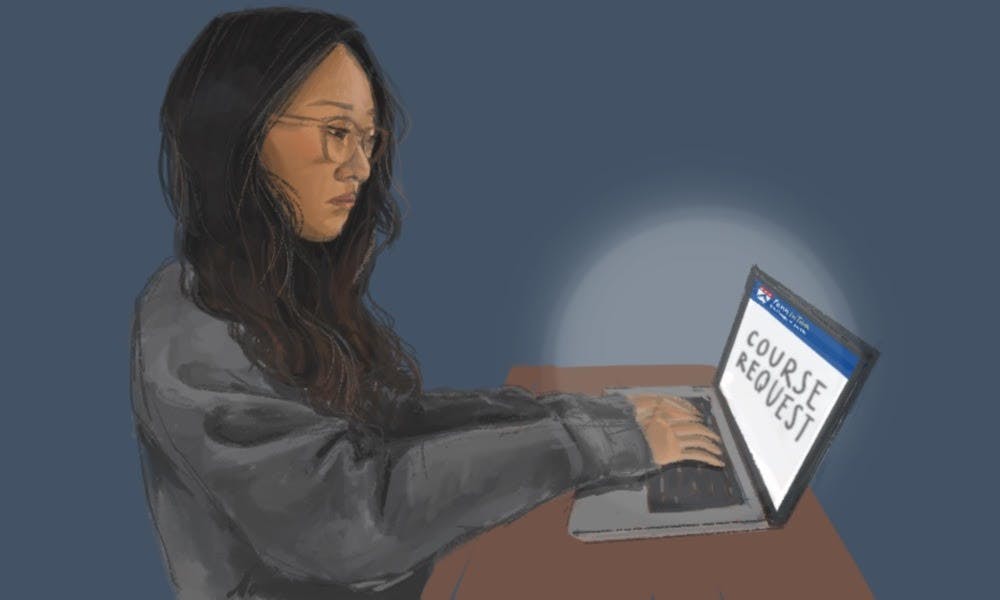
In the 1973 report “Institutional Planning at the University of Pennsylvania,” then-Penn President Martin Meyerson implemented the One University policy, which allows students to take courses at other schools across the University. Penn boasts to prospective and current students about the opportunity to take classes across its many schools. The One University policy, as outlined in 1973, was originally intended to provide students with the chance to be well-rounded, and not to shy away from learning outside their respective fields of study. Now, credit requirements restrict the actual ability of students to make use of this policy. Penn must embrace academic freedom and encourage students to pursue education across the University, rather than restrict the courses outside of students' respective schools that can be counted toward electives and requirements.
Students across several of the undergraduate schools can take a limited number of classes outside of their school. Students in the College are restricted to four courses outside of the College if they want those classes to count toward the minimum number of credits required for graduation. Engineering students are restricted to several free electives and only courses that meet specific Social Studies and Humanities requirements. On the other hand, Wharton students are allowed to take an unlimited number of courses, save for their general requirements and concentrations, in other schools.
A complete education must cover more topics and perspectives than what is available within one major or department. Many universities don’t have the wealth of options that Penn does, with four undergraduate and 12 graduate schools, which makes it particularly important that the University allow students to take advantage of these resources. Penn’s curricula already acknowledge the importance of breadth in education by requiring students to take a large number of electives along with their major and college requirements. Yet, an arbitrary distinction is drawn such that classes outside of one’s school can only be used for a small number of these requirements. This only serves to limit the rich educational opportunities that could exist for students at Penn.
Reforming this policy would bring Penn’s advertising in line with the realities experienced by its students. Campus tours tout the ‘One University’ policy as a driver behind Penn’s academic freedom and a factor that makes Penn’s academics special among peer institutions. To young students that are unsure of what they wish to study, this policy is especially compelling. Currently, this lofty and laudable endeavor falls short.
The University needs to reflect on what was promised to students in 1973. Penn must not hinder students from learning about varied fields and disciplines. Rather, Penn must allow students to take courses across all areas of study and require its undergraduate schools to be more flexible with counting those courses for credit.
Editorials represent the majority view of members of The Daily Pennsylvanian, Inc. Editorial Board, which meets regularly to discuss issues relevant to Penn's campus. Participants in these meetings are not involved in the reporting of articles on related topics.
The Daily Pennsylvanian is an independent, student-run newspaper. Please consider making a donation to support the coverage that shapes the University. Your generosity ensures a future of strong journalism at Penn.
Donate







